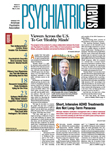For a while it seemed pretty simple. Avoid obesity, and you would also reduce your chances of getting cardiovascular disease, some cancers, and dementia. But the obesity-dementia link may be more complicated than that, a new study suggests.
The study was led by Annette Fitzpatrick, Ph.D., a research associate professor in epidemiology at the University of Washington. Results were published in the March Archives of Neurology.
The study included some 2,800 older adults, on average age 75 years, without dementia. They reported what their weight had been at age 50. Their height and weight were also measured when they entered the study. The researchers used this information to calculate their body mass index for both midlife and older age.
The subjects were followed on average for five years to see whether any developed dementia. Of 480 who did, 245 had Alzheimer's disease and 213 had vascular dementia or Alzheimer's plus vascular dementia. Finally the researchers examined whether there were any links between the subjects' body mass index at midlife and the risk of developing dementia, taking into account possibly confounding factors such as demographics or cardiovascular risk, or whether there were any links between subjects' body mass index in later age and the risk of developing dementia, taking the same possibly confounding factors into consideration.
Obesity at midlife was associated with an increased risk of dementia, whereas obesity at a later age was associated with a reduced risk of dementia. In contrast, being underweight at midlife was associated with a lower risk of dementia, whereas being underweight at a later age was associated with an increased risk of dementia. The results were similar for both Alzheimer's and vascular dementia, although being underweight at a later age seemed to particularly predict vascular dementia.
Fitzpatrick and her colleagues have no explanation for why midlife obesity seems to be linked with an increased dementia risk and later-age obesity with a reduced dementia risk. But they do tender a possible explanation for why being underweight at a later age seems to be linked with an increased dementia risk: it could be that being underweight is not a risk factor for dementia per se, but rather a sign of encroaching dementia. After all, weight loss is a known symptom of dementia, and some investigators have found that weight loss may predate dementia onset by as much as a decade.
In fact, as Fitzpatrick told Psychiatric News, “I've come to the conclusion that ... the brain is a wonderful thing—we are very good at being able to compensate for many of the mental problems that develop as we age. Diagnosis of dementia may not occur until the process is well under way. The body, however, is not quite so clever. So the physical signs of dementia, including weight loss, may be present first.”
The study was funded by the National Institutes of Health.
